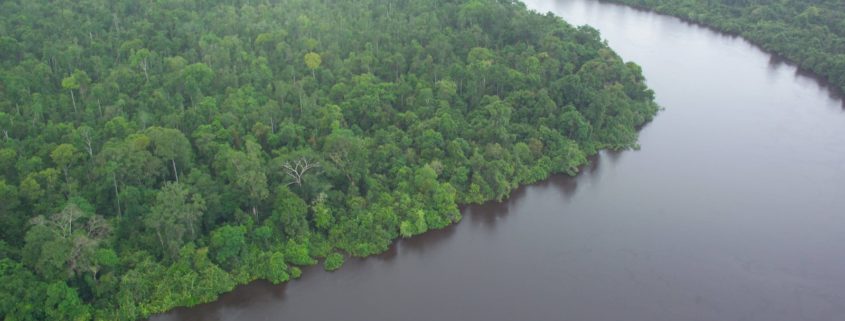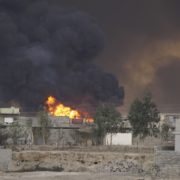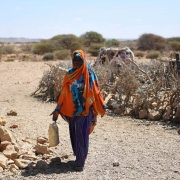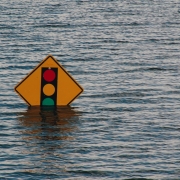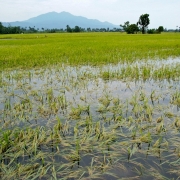HotSpots H2O, November 14: Environmentalists Fight to Protect Tonnes of Carbon Beneath Congo Basin Peatlands
The Global Rundown
Environmentalists fight to protect the Congo basin’s peat swamps from logging, which could release huge amounts of stored carbon. A fresh round of shelling damages water supply facilities in Eastern Ukraine. The plastic and iron industries spar over who will replace the United States’ crumbling water infrastructure. Victims of Brazil’s Samarco dam disaster continue to fight for compensation two years after their villages were destroyed. A Peruvian farmer prepares to face German utility RWE in court over a climate lawsuit.
“The glacial melt is very fast there and some glaciers are about to disappear due to global warming. Those responsible are the big industries that have burned coal… that have burned petroleum. The main objective of what we want to achieve is that these businesses stop polluting.” –Saúl Luciano Lliuya, a Peruvian farmer, in reference to his lawsuit against German utility RWE, one of Europe’s biggest polluters. Luciano accuses RWE of helping raise global temperatures through carbon dioxide emissions, causing Peru’s glaciers to melt and jeopardizing the safety of Luciano’s village. Reuters
By The Numbers
$300 billion Estimated amount that local governments in the U.S. will spend on replacing water and sewer pipes over the next decade. Currently, materials such as iron and steel account for two-thirds of municipal water pipe infrastructure, but the plastic industry seeks to rival traditional providers, causing a “pipe war” as repairs begin. The New York Times
30.6 billion tonnes Estimated amount of carbon beneath central African peatlands, the equivalent of three years of fossil fuel emissions. Environmentalists in the Congo Basin are fighting to protect the expansive peat swamps, which could soon be opened to logging despite past protections. The Guardian
Science, Studies, And Reports
Increased conflict near water supply facilities in Eastern Ukraine is raising concerns over water and chemical disasters, according to UN reports. Shelling has damaged two major water filtration stations, which serve 1.1 million Ukrainians and store chlorine gas and other dangerous chemicals on site. Relief Web
On The Radar
Two years ago, a dam holding back tonnes of sludge collapsed at Brazil’s Samarco iron ore mine, inundating several villages, killing 19 people, and contaminating the area’s water supplies. Although some villagers have received compensation, many are still fighting for reimbursement from the company that destroyed their way of life. Reuters
Kayla Ritter is a recent graduate of Michigan State University, where she studied International Relations and Teaching English to Speakers of Other Languages. She is currently based in Manton, Michigan. Kayla enjoys running, writing, and traveling. Contact Kayla Ritter

